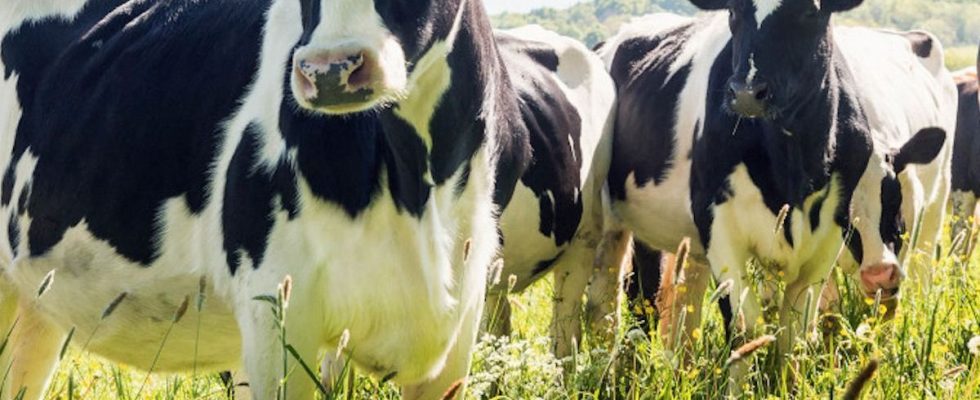Published on
Updated
Reading 2 mins.
To eliminate methane emissions, some scientists are studying the potential of bacteria capable of ingesting this greenhouse gas. A solution that could prove effective in limiting global warming according to American researchers, who have just published a study on the subject.
Along with carbon dioxide (CO2), methane (CH4) is one of the greenhouse gases that contributes the most to global warming, although it is faster to remove from the atmosphere than the first. A UN report published in 2021 estimates that reducing methane emissions now would prevent global warming of nearly 0.3°C by 2045.
Methane, the cattle industry’s blow
A scenario which however requires a drastic reduction in meat consumption, but also to change the diet of cows intended for breeding, to identify and repair more effectively methane leaks during the extraction of fossil fuels or even to to improve the capture of biogas from organic waste.
As a reminder, the cattle industry is one of the main contributors to greenhouse gases in the world with a very significant production of methane due to the digestion and excrement of these animals.
The hope of a bacterium addicted to methane
To add their stone to the building in this hunt for methane, American researchers from the University of Washington (United States) are proposing an innovative solution: a strain of bacteria.
Responding to the small name of “methanotrophs” (Methylotuvimicrobium buryatense 5GB1C), the strain in question evolves in sites where methane emissions are high, such as landfills, rice fields or oil wells or near cattle herds. According to the study, the need to swallow methane in this strain would be five times greater than that of other bacteria.
Slow down global warming by 2050
Once ingested by these bacteria, the methane can turn into carbon dioxide or biomass that could potentially be used for other activities like feed for aquaculture, the researchers suggest. “This bacterium is a candidate for the development of methane removal technology at emission sites. If properly scaled, this technology could slow global warming by 2050“, note the authors of the study, published in the journal PNAS.
However, this is not the first time that scientists have taken an interest in this specific strain of bacteria. In 2022, American researchers from Northwestern University have also highlighted the potential of methane-eating bacteria to transform this greenhouse gas into fuel (methanol).
